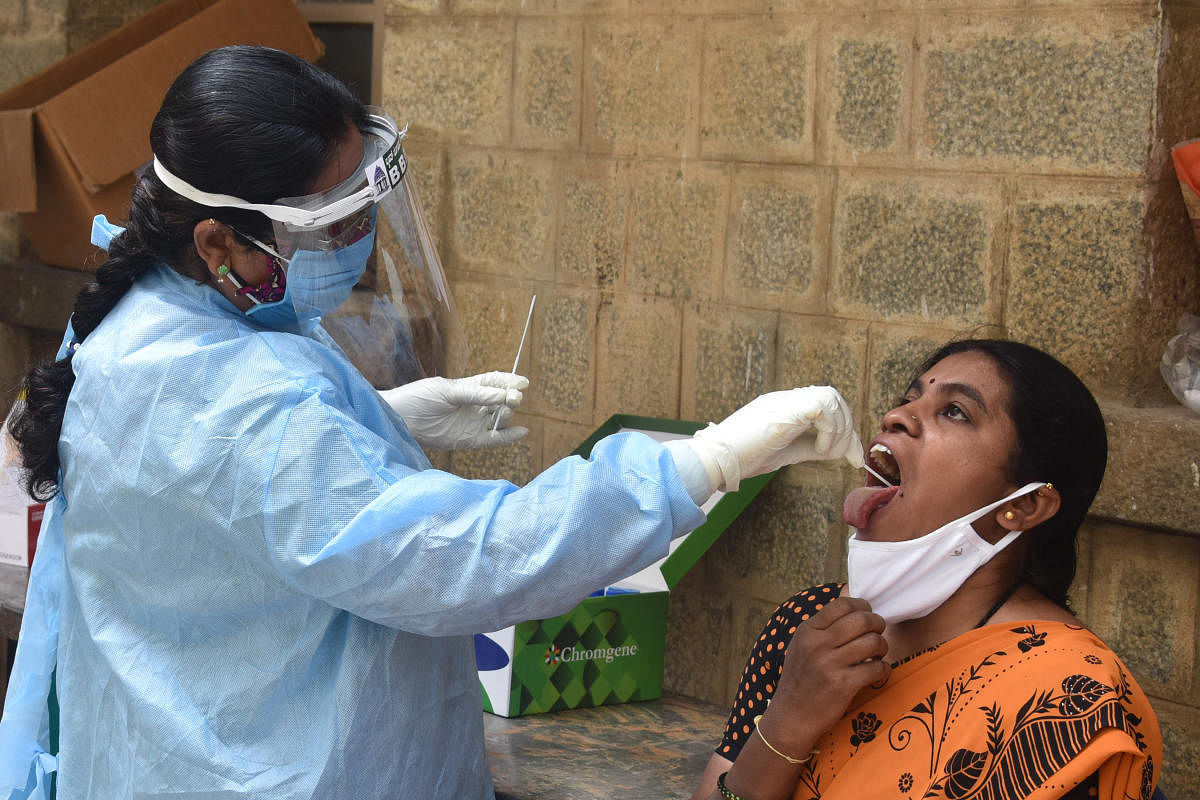
Although Bengaluru's South Zone is carrying out the highest number of Covid tests in the city, the ground reality presents a messy picture.
Speaking to DH, Munish Moudgil, IAS and special officer for the zone, said 76,957 tests have been done in the zone from August 1 to 25, which amounts to an average of 3,078 tests per day. Moudgil said the actual number of tests is about 5,000 per day.
On the field, however, staffers complain that public engagement is low. Exacerbating this issue is the fact that testing is being done irregularly across wards, contradicting official, ward-wise schedules disseminated on social media, and displayed at Urban Primary Health Centres (UPHCs).
“Our UPHCs are testing about twenty to thirty people per day, but we have a slightly higher number of tests being done at the mobile camps, about 150,” Moudgil said.
A BBMP doctor said the official recommendations called for at least 150 tests per day to ensure that a sizable number of positive patients were found.
“However, the number of tests being done is declining because people are not coming forward. There is a fear of hospitalisation," she said.
Many camps and UPHCs were struggling to generate recommended numbers. At one camp held near Double Road, the staff had a mandate to test 200 slum dwellers by dusk on Thursday, after a testing camp on Sunday had found three positive cases. “But most of the people have run away or are hiding,” said frustrated testing staff and police constables detailed to forcibly bring slum dwellers for testing.
By 1 pm, the camp had only managed to test around 60 people, most of them children.
The challenges are unhelped by the fact that camps scheduled to be held at various locations across 44 wards were either non-existent when DH visited on Thursday or were at another location.
At a slum called Gulbarga Colony in Jayanagar, the Anganwadi where testing was scheduled for Thursday was shuttered. Residents said that BBMP officials had come over a week ago, but could not say if anybody had been tested.
The situation was the same at the Bande Slum in Hombegowda Nagar. Moudgil clarified that the zone is testing 28 wards on any given day, owing to manpower shortage.
“This is not just a problem with our zone. It is across the city, even though we are offering attractive pay to recruit more swab collectors,” he said.
Financial incentive
Moudgil said offering a Rs 30 bonus per person tested to Asha workers and even science graduates working as collectors had provided some incentive for the existing staff to keep working. This may have prompted some testing to be overzealous in recruiting test subjects. Many were seen calling on or accosting passersby to get tested.